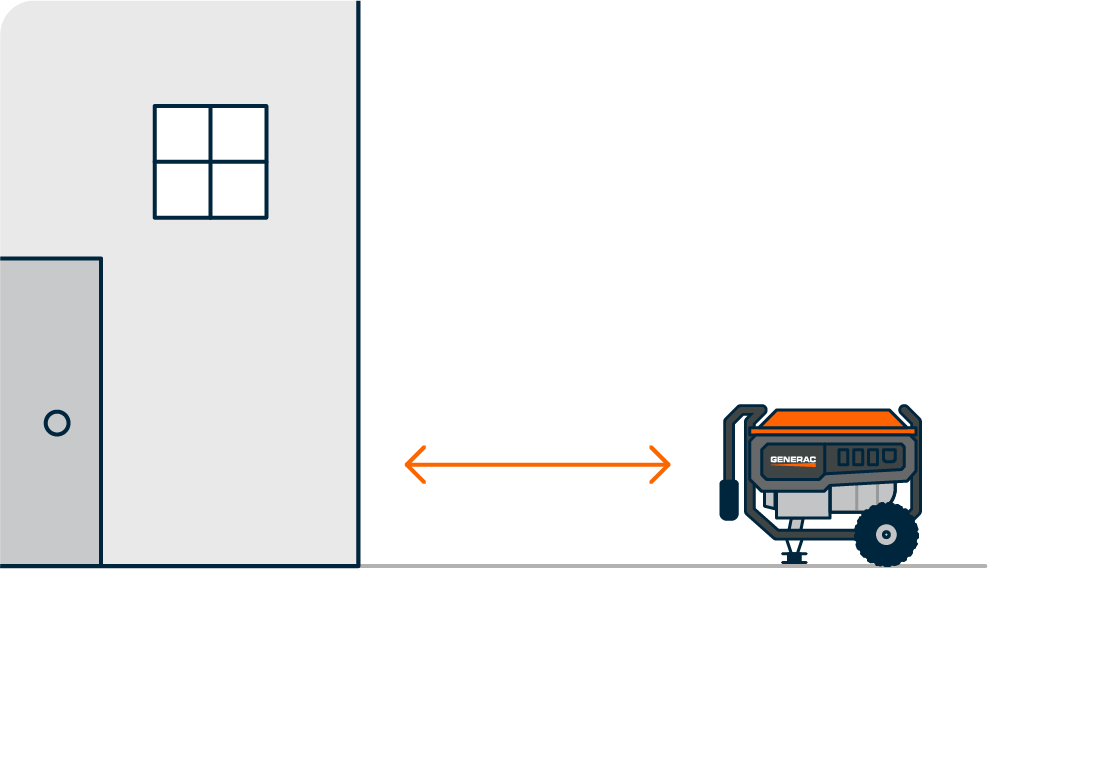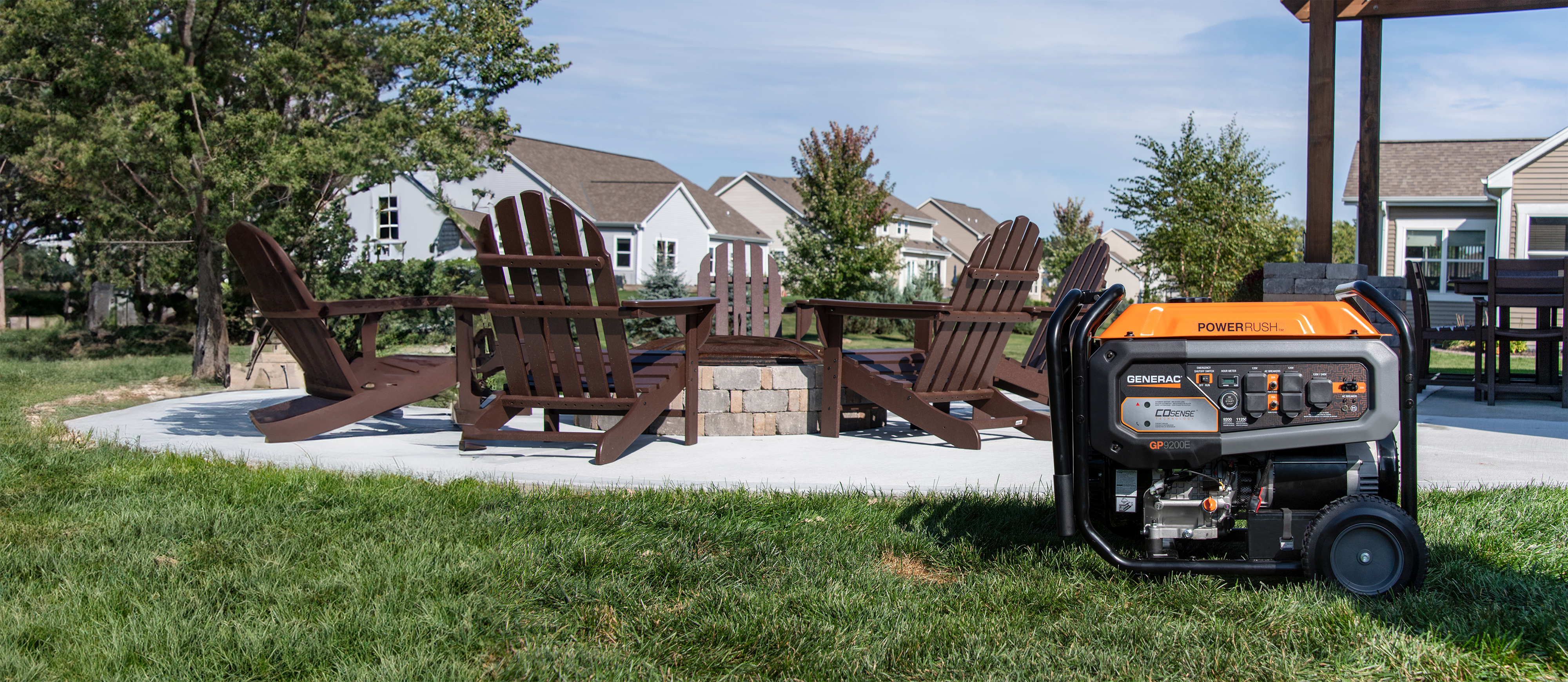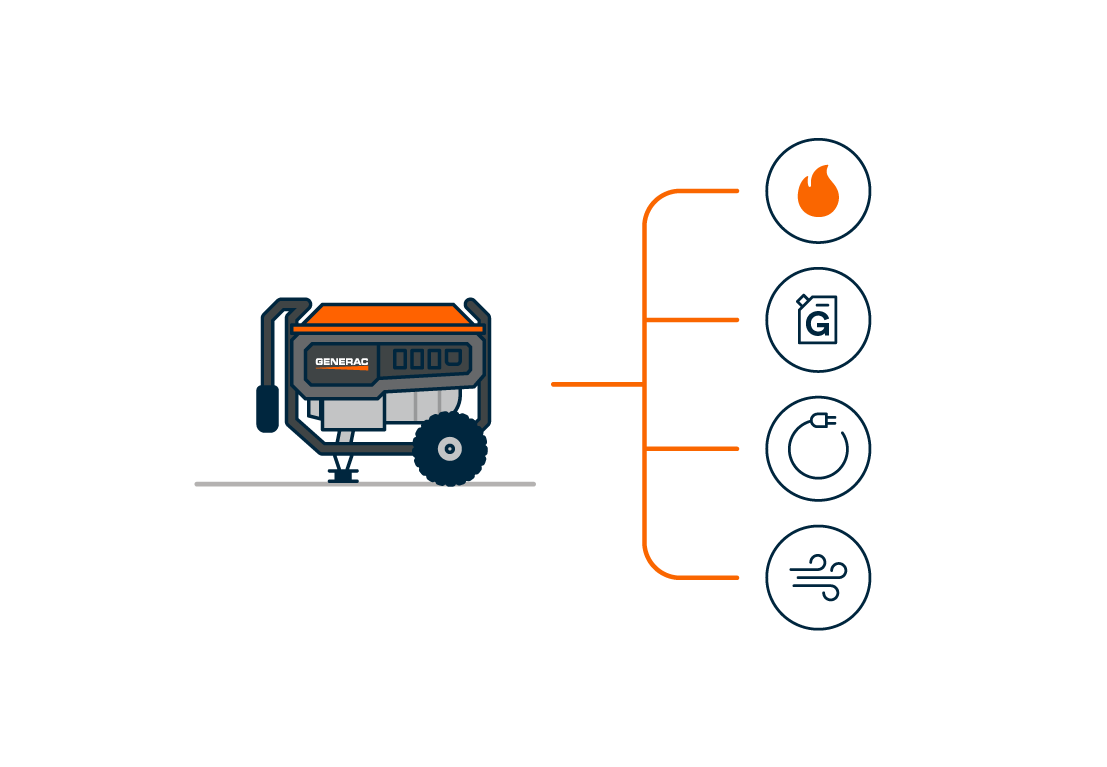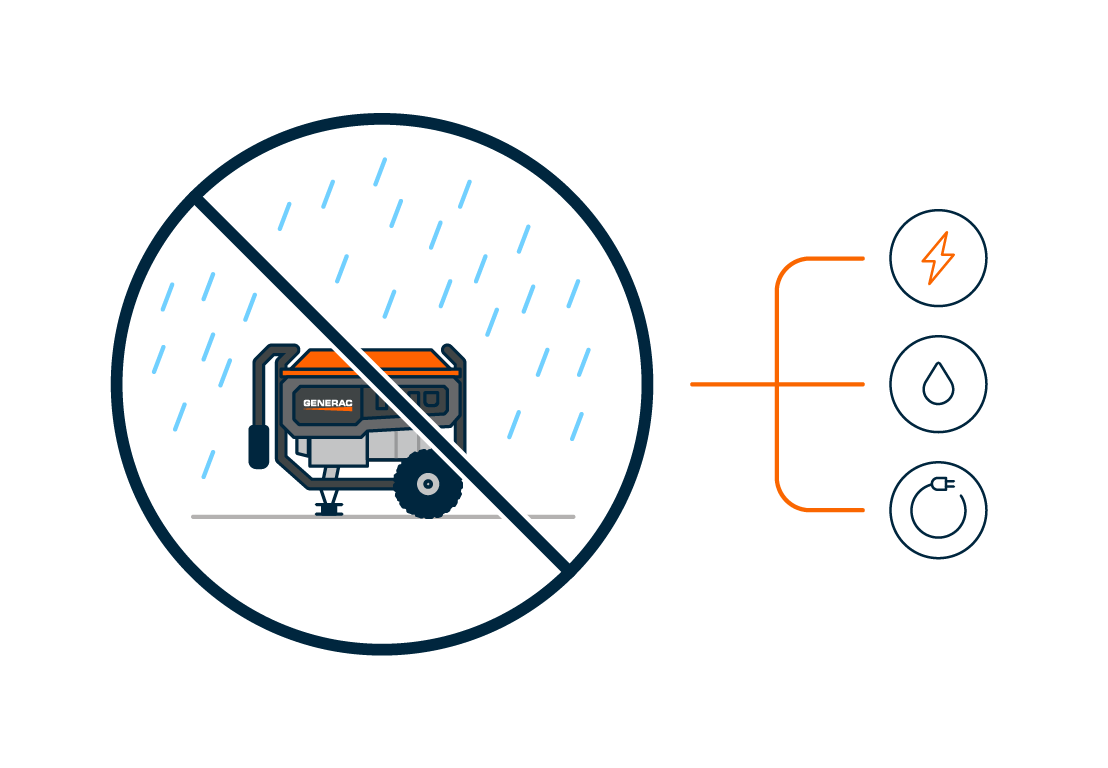Always Operate Your Portable Generator Outdoors
Generator exhaust contains carbon monoxide that can be lethal in minutes. ALWAYS run your generator outside of your home, and keep it far from any windows, doors, vents, or other openings that can allow exhaust to enter your home.
Symptoms of CO poisoning include headaches, dizziness, nausea, and fatigue. Seek fresh air immediately if you experience any of these symptoms. CO detectors can act as an additional safeguard to protect against carbon monoxide poisoning.




